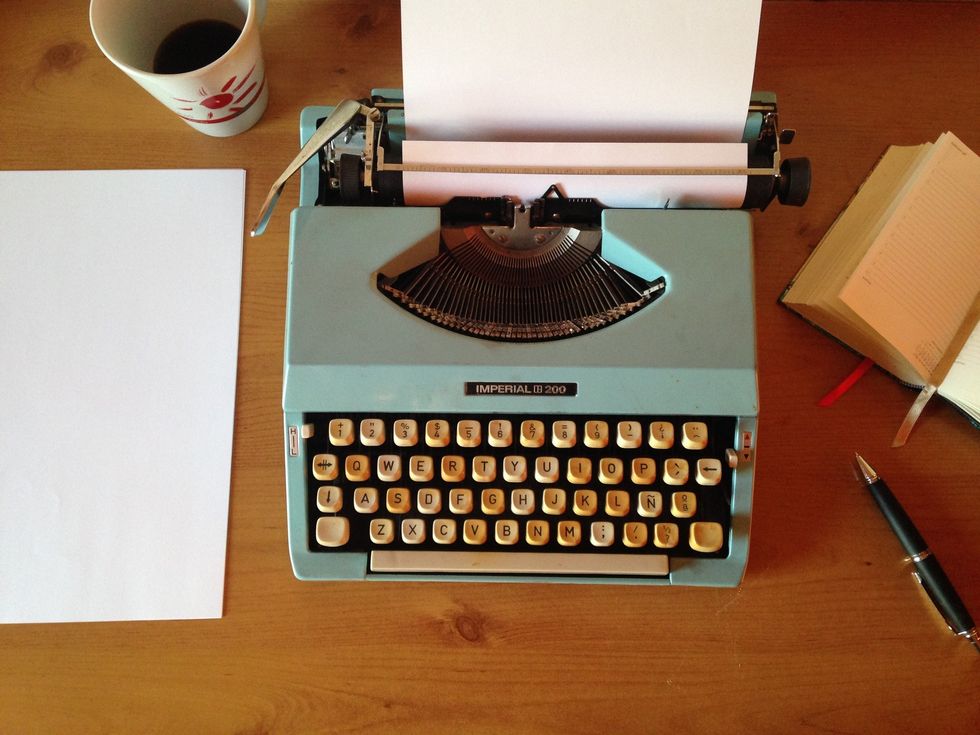Procrastination is hands-down one of the biggest vices we've ever fallen victims to. Regardless of whether you're in college and need to get some essay writing done, or have a deadline for a presentation at work, it's easy to do a dozen other things instead of actually focus on work.
As someone who does writing for a living, where procrastination would mean ending up homeless and broke, I've learned to deal with it by using a few simple tricks. Check out my top three ways to deal with procrastination.
1. Always start by using pen and paper
I absolutely love writing in an actual notebook with a good pen. To me, this is the best way to begin any written assignment. Why? Because once you get the first words out and see them written physically, you get a sense of reward. While 99% of projects would require you to use a laptop, start with the notebook. Writing on a laptop is much faster and easier, but it doesn't bring the same amount of gratification.
image via kaboompics
You can get creative and start by writing the central idea. Then circle it. Draw arrows out of it, pointing towards smaller chunks of your thesis. Think of this as creating an architectural plan for your essay or presentation. Once you have a beautiful scheme drawn out, you've got the skeleton of your writing and can begin filling it up.
I've got a thing for really light notebooks and really sharp pens. Find your style and invest a few bucks in getting the right supplies, so that writing is actually something you look forward to and feels enjoyable.
2. Apply the 7-minute method
The seven-minute method just might change your life. Here's how it works.
Set the timer on your phone to 7 minutes. Once you hit "start," begin doing as fast as possible the tasks that you've got to complete. This could be anything from cleaning your room to cooking and answering email.
When it comes to writing, the seven-minute method can really help you focus and put your thoughts to paper. The pressure of time running out is super stimulating. The sense of relief that you're done after the seventh minute is a reward that you're motivated to pursue. It's pretty much a win-win.
image via startup stock
What happens after the seventh minute? Well, you're free to stop working, as the deal goes. Chances are though, that thanks to all the speed and inertia you've created by pushing yourself, you'll continue writing. If not, it's ok to leave it and do it again in a few hours until you gain enough momentum to completely finish the project.
3. Allow yourself to quit at any moment
Writing is kind of like going out for a run. You know you're going to do it and you want to get it done, but thinking of the uphill that hurts so much on your quads and the cold air slapping you in the face, paints quite the miserable picture in your head. It can be hard to get the initial push to begin the activity. Same goes for writing, especially if you've got writer's block.
The secret to both is a bit counterintuitive. Allow yourself to quit at any moment. When you're running and it starts to hurt, I say to myself: "ok, I can quit now, let's just make it to the end of that path!" Next thing you know, the feeling of overcoming that little steep part is so enjoyable, that I let myself go a little farther and so on.
image via Negative space
Know that the project will be completed eventually. Then allow yourself the freedom to stop working when it gets painful. Chances are that pushing yourself bit by bit will actually help you finish much faster. If you do end up quitting, that's ok, don't be too harsh on yourself. Go back to the seven-minute rule and combine with a gentle push. Once you ease your mind in this way, your writing will begin to flow.





















